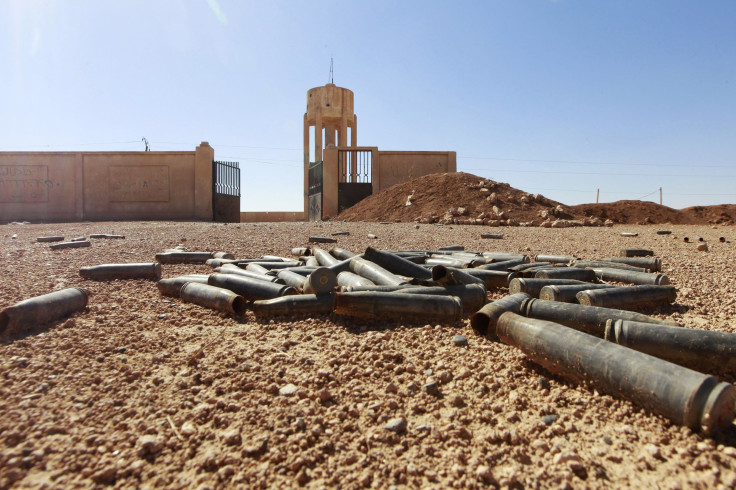Iraqi Troops Abandon Military Base To ISIS Raising Concerns Over Military Strategy In Iraq And Baghdad's Safety

The Iraqi military's abandonment of a military base near the town of Hit, near the capital of Anbar province, calls into question the strategy of coalition airstrikes supported by local army units as sufficient to stop the Islamic State advance on Baghdad. The base abandonment left Hit under full jihadist control.
“There’s no question that there are problems with the current military strategy, but it’s doubtful that ISIS could actually take Baghdad,” said Benjamin Friedman, research fellow in defense and homeland security at the Cato Institute, a Washington think tank. “The Iraqi military should function better defending Baghdad than it does in Anbar, but even if they took control they are gonna have a hard time governing it without suffering the same sort of violent insurgency the United States did.”
The fall of the town comes at a time when Kurdish fighters are trying to maintain control of the Syrian border town of Kobani, which has become a symbolic battleground in the broader war against ISIS.
British Foreign Secretary Philip Hammond, on a visit to Iraq, also said airstrikes will not be sufficient to beat ISIS, and the Iraqi military would have to do “the heavy work on the ground.”
This statement follows arguments from U.S. military leaders who said the only way to sufficiently deal with ISIS would be to put U.S. boots on the ground, an idea President Barack Obama has been against since airstrikes began.
However, it has become clear the Iraqi military has been overwhelmed by the attacks from ISIS that have endured throughout the summer, and the abandonment of the military base in Hit may go some way to examining if Iraqi forces are able to deal with the extremist group.
“Our military leaders argued that instead of leaving those forces exposed to attacks by ISIS, they would be best used to shore up the defense of Asad air base,” a senior police official in Ramadi, the capital of Anbar province, told AFP.
While Hit is still 150 miles from Baghdad, ISIS has been probing some of the Iraqi capital’s suburbs as near as 8 miles from the city.
But as Friedman pointed out, the mission hasn’t been going on for a huge amount time.
“If you remember Libya, the airstrikes were deadlocked for a little while before things changed,” Friedman said. “Part of that was the rebels getting their act together and the airstrikes becoming better coordinated. So there is a lot of time left before anybody hits the panic button.”
However, the fight for Baghdad has seemingly already begun as ISIS sleeper cells carry out daily bombings and assassinations while the main ISIS fighters continue to probe areas around the capital. If it pushes into Baghdad, ISIS, which numbers 30,000 to 50,000 fighters, will come up against 60,000 government troops that have been tasked with defending the capital. But as was seen with Hit and other towns around the country, questions still remain over the discipline of those troops in Baghdad, who may not previously have come up against a group like ISIS.
The U.S. military, which withdrew troops from the country in late 2011 after more than eight years of war, launched airstrikes in August to assist Kurdish and Iraqi forces. After U.S.-led strikes in Iraq, a coalition of five moderate Arab countries launched similar strikes in Syria, where ISIS has captured a huge amount of territory, declaring a caliphate in an area straddling the Iraqi-Syrian border.
"The coalition can only deliver effective support to the Iraqi government and Iraqi security forces," Hammond, the U.K.’s top diplomat, said during his visit to Baghdad. "The Iraqi people, the Iraqi security forces and Iraqi government will have to take the lead on the ground.
"We always understood that our campaign alone was not effective to be decisive in turning the tide against ISIL," Hammond added, using an alternative name for ISIS. "But it has halted the ISIL advance, it has forced ISIL to change its tactics and it is degrading their military capabilities and their economic strength, their ability to exploit oil revenues, for example."
© Copyright IBTimes 2025. All rights reserved.






















